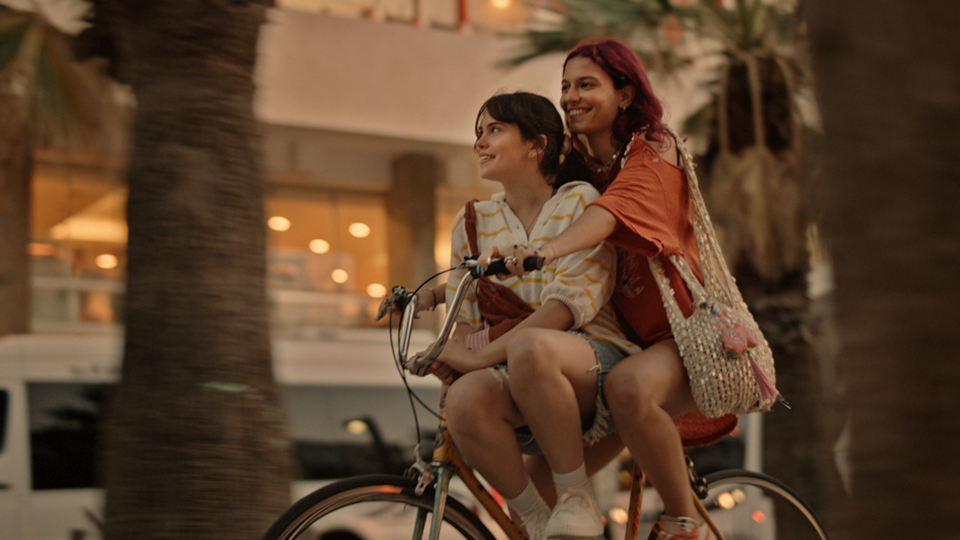
The relationship between two people is an intimate thing that can’t be completely understood by those outside of it. When a relationship ends, for whatever reason, it will be difficult to convey just what exactly has been lost to anyone else. When one person dies, however, it can be exponentially more painful since it’s not two people moving on separately and instead one carrying all the burden of memories and moments alone. Come Closer showcases one person’s attempt to understand what the person she considered closest to her had with someone else following his untimely passing.
Eden (Lia Elalouf) throws a memorable surprise birthday blowout for her younger brother Nati (Ido Tako) and is devastated when he is killed in a car accident that same night. Crushed by the loss of someone with whom she felt she shared everything, she is surprised and unnerved to see someone she doesn’t know looking particularly sad at his funeral. Determined to find out who she is, Eden follows Maya (Darya Rosenn) and soon learns that she was Nati’s girlfriend. As the two begin to get to know each other, they develop a closeness that may or may not be entirely tethered to the person they both loved who is now gone from their lives.
While Nati is the figure that unites this film’s two protagonists, he’s barely seen, meeting his unfortunate and sudden end just a few minutes after the film begins. In his brief appearance, he’s startled and worried when his friends stage a fake kidnapping to bring him to the spot where his party will happen, and the way in which he’s finally clued in to what’s actually happening involves a knowing and almost commanding look from Eden. She clearly has a strong and profound influence on her brother’s life, even if that’s not always what he wants, as suggested by the fact that he chose not to share Maya’s existence with her.

Come Closer is an astounding debut for the three women at its center. Tom Nesher directs her first feature with a confidence and comfort that allows her to hone in on the vulnerability of two young people so entrenched in their grief that they aren’t able to properly relate to the world. Elalouf is guarded and generally on edge, feeling betrayed by the fact that her brother didn’t share someone who was so important to him but just as desperate to get to know anything else she possibly can about him. Rosenn is shier but capable of fighting back when she feels slighted and attacked for something which isn’t her fault.
Seeing how quickly and unexpectedly Eden and Maya bond is an intoxicating process, full of quick montages and unspoken interactions that indicate the tenderness they have found in getting to be closer with one another. Watching the shift from aggression on Eden’s part and trepidation on Maya’s gives way to the kind of passion that feels incredibly strong but also fleeting, born out of a moment of shared grief in which they both need to feel something resembling what they both experienced with the late Nati.
Come Closer is a captivating look at falling hard, choosing purposely not to commit to what that falling means exactly, especially as its characters argue with each other about the nature of their connection. Though its story is quite specific, there’s a universality to the way in which it captures a moment of desolation and grief and extrapolates what comes next when those within it couldn’t possibly imagine anything coming after what they are experiencing. It’s an enduring and haunting look at trying to recreate something that can’t be replicated carried by strong, promising performers under the guidance of a talented first-time feature director.
Grade: B+
Check out more of Abe Friedtanzer’s articles.
Come Closer makes its world premiere in the Viewpoints section at the 2024 Tribeca Festival.

